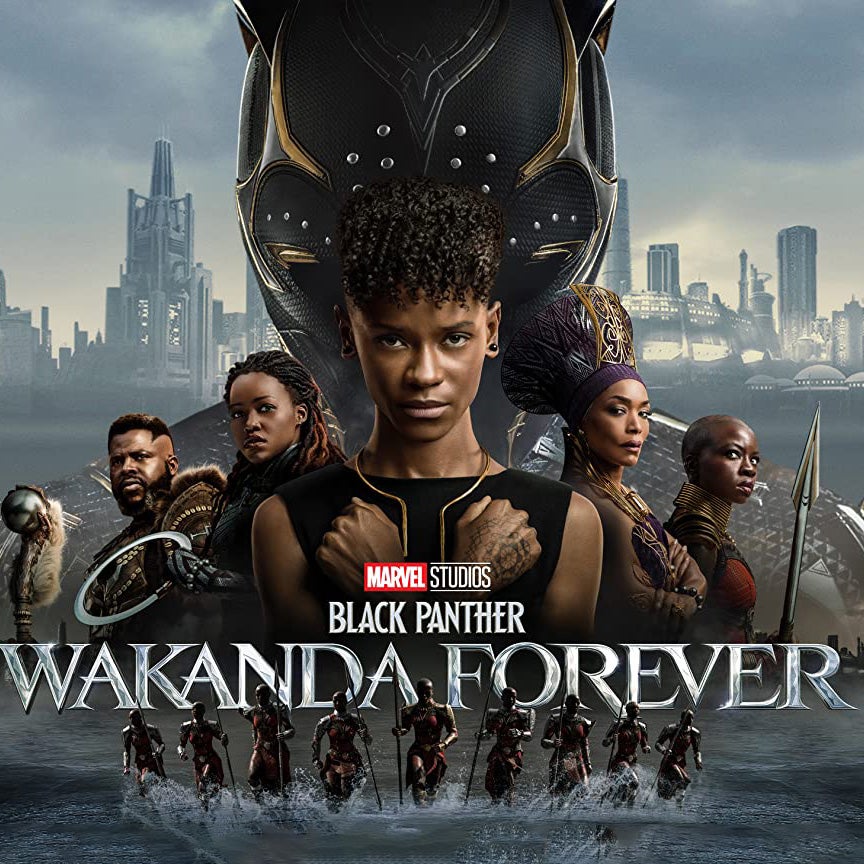‘Black Panther: Wakanda Forever’ Provides Nuanced, New Perspectives
Image by Marvel Studios
Image credit to Marvel Studios
Spoilers ahead!
A highly anticipated sequel to Marvel’s Black Panther, Black Panther: Wakanda Forever delivered on expectations. Since lead actor Chadwick Boseman passed away before production began, it would be understandable if the storyline was lackluster. While his presence was missed, the film made up for it with a tone of hope after loss, inspiring viewers for a new future.
The movie opens with a discussion in Geneva, Switzerland at a United Nations (UN) meeting. Queen Ramonda criticizes the member states for attempting to intervene in Wakanda and their selfish natures when sharing resources, hinting at how little they know about Wakanda despite their self-importance. Later, the CIA Deputy Director Valentina confirms this by declaring that she dreams of what would happen if the US possessed vibranium powered weapons and hatching a plan to destabilize Wakanda that never fully pans out.
The contrast between the West’s perception of themselves versus Wakanda’s clarifies why exactly Wakanda is so powerful– because of using vibranium. Prior to colonized nations reaching full autonomy, gold and silver mining, along with access to specific resources were why these nations were colonized.The film also skillfully drew parallels between the fictional world and our world today: vibranium can be equated to gasoline and the world’s hunger for oil in a modern context. Additionally, the portrayal of the United States and UN is new and resets what some critics believe is part of a propaganda machine. In the past, the United States CIA and Pentagon have reportedly funded Marvel and other media as public relations and recruitment tools, withholding money if portrayals weren’t accurate enough.
Joining Wakanda at the top of international relations powers is Tolokan, a secret underwater nation with access to vibranium. It represents the mythology of the Aztecs, where Tlālōcān was a utopian part of the heavens and was formed in response to Spanish conquistadors attempting to colonize the Americas. While their rivalry over whether or not to wreak vengeance on the allied world is deadly, they both represent a reality where Indigenous and Black people’s subjugation never happened.
Moreover, while less revolutionary, Wakanda Forever provides crucial representation. Princess Shuri takes the lead, stepping up from genius little sister to strategic and compassionate ruler of Wakanda after Queen Ramonda’s death, reconstructing the Black Panther suit and utilizing her technology to unprecedented levels. In a world where women maturing is not celebrated, this is refreshing. Shuri is also not the only talented young girl of color, with new character and MIT student Riri Williams building a vibranium detector that attracts the attention of major militaries. Both characters underscore their brilliance with their love for their families and music, inspiring a new generation to pursue their STEM dreams while balancing their personal lives and passions.
Through discussing geopolitical conflict and providing representation in Black Panther: Wakanda Forever, Marvel sets up the next phase in the Marvel Cinematic Universe. Especially considering that the next Captain America movie is subtitled “A New World Order” with the introduction of Israeli superhero Sabra, it will be interesting to watch.
Your donation will support the student journalists of McNeil High School. Your contribution will allow us to purchase equipment and cover our annual website hosting costs.











